Are you planning to travel soon? While travelling can be an exciting and enriching experience, it's important to prioritise safety to ensure a smooth and enjoyable trip.
From knowing the common scams to staying aware of your surroundings, there are many steps you can take to stay safe while exploring new places.
As someone with several decades of travel experience, I know all too well the risks. And through experience, I’ve developed an understanding regarding the importance of researching destinations, staying vigilant in public areas, and trusting my instincts … all valuable tools in keeping me safe.
Whether you're a seasoned globetrotter or a first-time traveller, you can add these tips to your knowledge bank to help you navigate the complexities of travel safety with confidence and ease.
In this article, I'll share travel safety tips that you need to consider before embarking on your next adventure. By following these guidelines, you will feel prepared for whatever your travels may bring.
Know the Common Scams before Arriving
Knowing the common scams in the area you are travelling to can save you from potential financial and emotional distress. Falling victim to fraud or theft can not only ruin your trip but also lead to long-term consequences such as identity theft. Some common scams include fake taxi drivers and ATM skimmers
By researching ahead of time and educating yourself on the common scams, you can be prepared to recognise and avoid them. I wish I’d done this properly before visiting the Philippines.
Proper research can help you stay one step ahead of scammers and ensure that your trip goes smoothly. And being knowledgeable about the scams in the region can help you make informed decisions and stay alert.
Ensure your Valuables Are Secure (Ideally Locked Away)
Ensuring the security of your valuables while travelling is of utmost importance. Losing your valuables, such as your passport, credit cards, or electronic devices, can ruin your entire trip and leave you stranded in an unfamiliar place. By locking them away (in a locker [if you’re staying in a hostel] or a safe [in some hotels]) or keeping them close to you (such as in a money pouch hidden under your clothing), you decrease the chances of losing them or having them stolen.
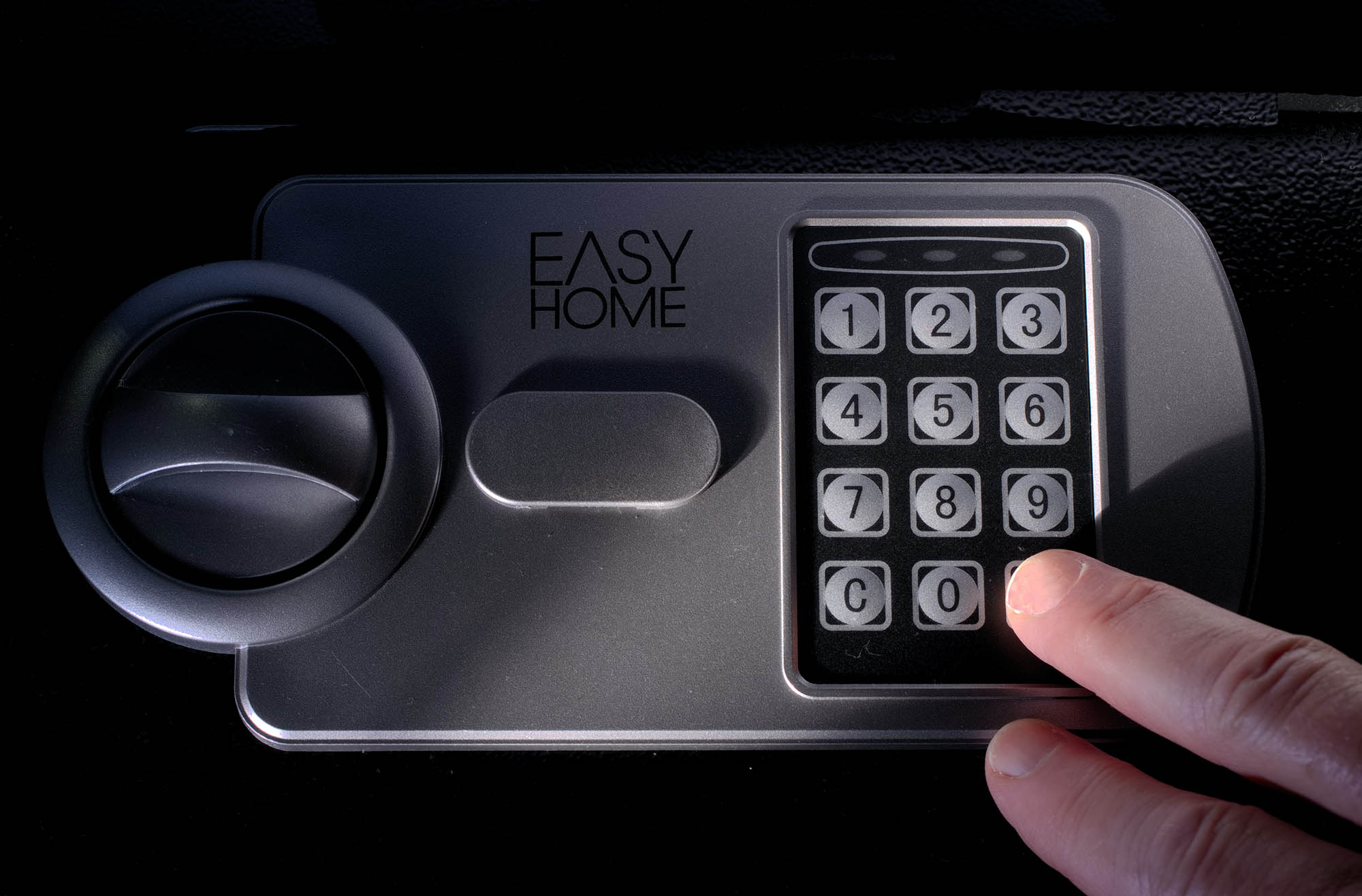
The benefit of taking extra precautions to secure your valuables is the peace of mind it brings. You can relax and enjoy your trip without constantly worrying about the safety of your belongings. Additionally, if something does go wrong, such as your bag getting stolen, you will have the assurance that your most valuable possessions are safe and secure.
Buy Travel Insurance
Travel insurance is an essential part of travel preparation, as it can provide peace of mind and financial protection in case of unforeseen circumstances.
When travelling, there are many risks such as flight cancellations, lost or stolen luggage, or even medical emergencies. Without travel insurance, these unexpected events can cause significant financial losses, stress, and disruption to your travel plans.
By purchasing travel insurance, you can mitigate these risks and ensure that you are protected. Depending on the policy, travel insurance can cover a range of events, including trip cancellation or interruption, medical emergencies, evacuation, and more.

Additionally, some policies offer 24/7 emergency assistance, providing you with support and guidance if something does happen.
The benefit of having travel insurance is that it provides a safety net and financial protection against these unforeseen events, allowing you to focus on enjoying your trip without worrying about the potential financial burden of any incidents. I’ve never travelled without it. And I’m thankful I’ve always had insurance as I’ve needed to make several claims (including for hospitalisation).
Use Local Knowledge by Asking for Advice
One of the best ways to make the most out of your travels is to tap into the knowledge of locals. Not only can they provide insider information on the best places to eat, drink, and explore, but they can also offer valuable insight into the local culture and customs.
And asking for advice from locals can help you stay safe. They can provide information on areas to avoid and tips on how to stay out of harm's way.
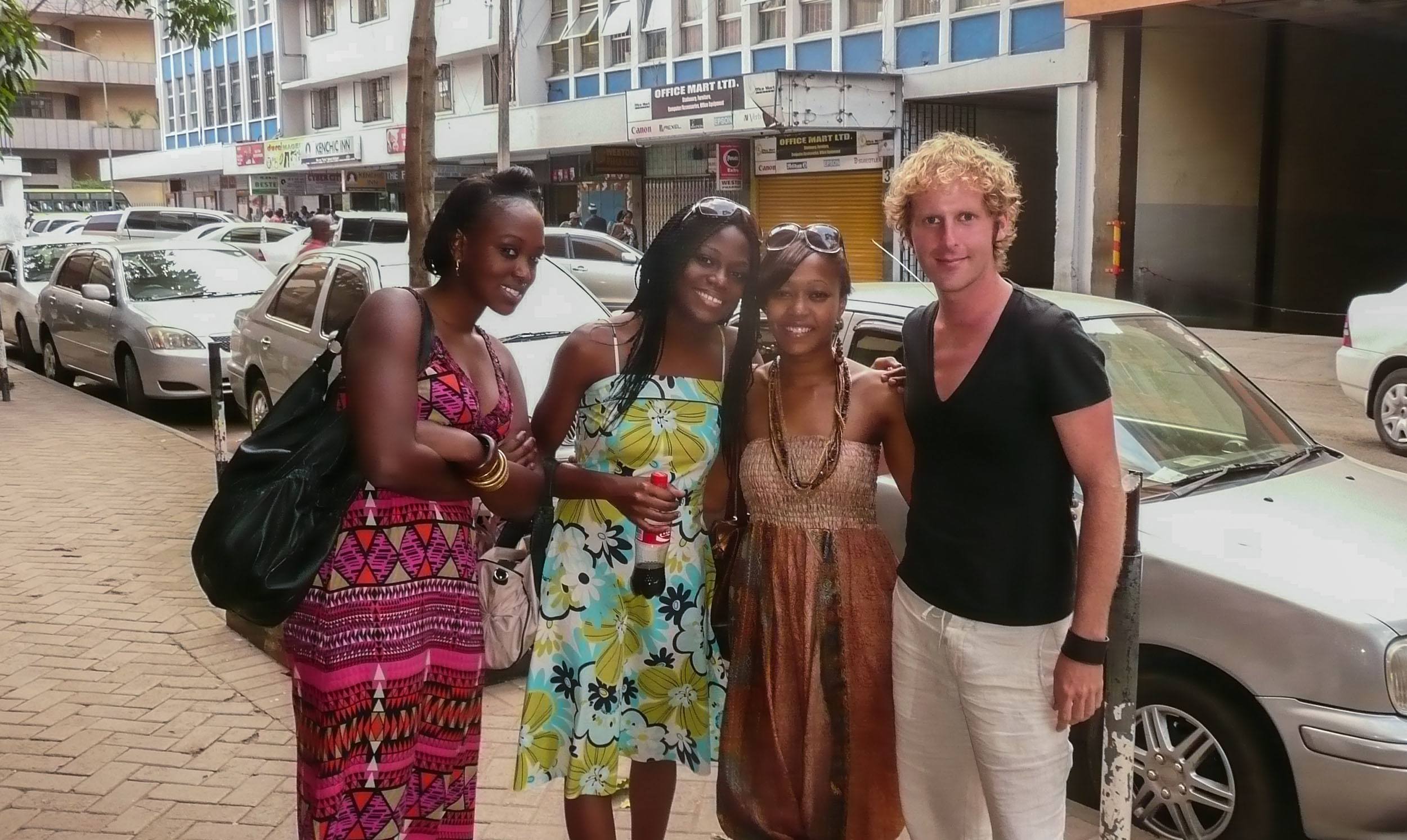
By taking the time to ask for advice and recommendations, you can discover hidden gems that may not be found in guidebooks or online resources. Additionally, by avoiding tourist traps and popular but overrated attractions, you can save money and have a more authentic experience.
Leave a Copy of your Documents and Itinerary with Friends and Family
Leaving a copy of your travel documents and itinerary with a trusted friend or family member is an important safety precaution that can save you a lot of trouble in case of emergencies. If your passport gets lost or stolen, having a copy of it can speed up the process of getting a replacement from the embassy. Additionally, if you have an unexpected delay, such as a missed flight, a friend or family member can help you rearrange your travel plans and coordinate with airlines or hotels.
By entrusting someone with a copy of your documents and itinerary, you can have peace of mind as someone has your back, even when you are far from home. This precaution is particularly important for solo travellers or those travelling to more remote or unfamiliar destinations.
So, take the time to share your travel plans with someone you trust, and keep them updated on any changes or developments during your trip. The benefits of doing so far outweigh any inconvenience.
Notify your Bank of your Travels
Notifying your bank of your travels is a crucial step in ensuring a hassle-free trip. When your bank is aware of your travel plans, they will not flag your transactions as fraudulent, which can often happen when you use your card in a foreign country. This can result in your card being blocked or frozen, leaving you without access to your funds (which has happened to me on several occasions).
By sending your bank a detailed copy of your itinerary, you allow them to monitor your transactions more efficiently, reducing the chances of your account being flagged. Additionally, your bank can provide you with emergency contact details in case you encounter any issues.
Avoid Over-Sharing with Strangers
Sharing too much information with strangers can put you at risk. You never know who you're talking to or who may be listening. It's important to protect your personal information, including your travel plans and accommodation details, to avoid becoming a target of theft or other crimes.
By being cautious about what information you share, not only does it reduce the risk of theft or other crimes, but it also helps you maintain your privacy and keep your personal information secure.
Remember, it's always better to err on the side of caution and keep your personal information to yourself. While it's tempting to share travel plans and experiences with new acquaintances, it's important to be mindful of your surroundings.
Dress conservatively and Be Conscious of How you Present to Others
Being aware of local customs and dressing appropriately can help you show respect for the local culture and avoid offending anyone. It can also help you to blend in and not draw unwanted attention, which can reduce your risk of being targeted by scammers or thieves.
Dressing conservatively is particularly important when visiting religious sites or conservative areas, as not doing so can lead to being denied entry or causing offence to locals.
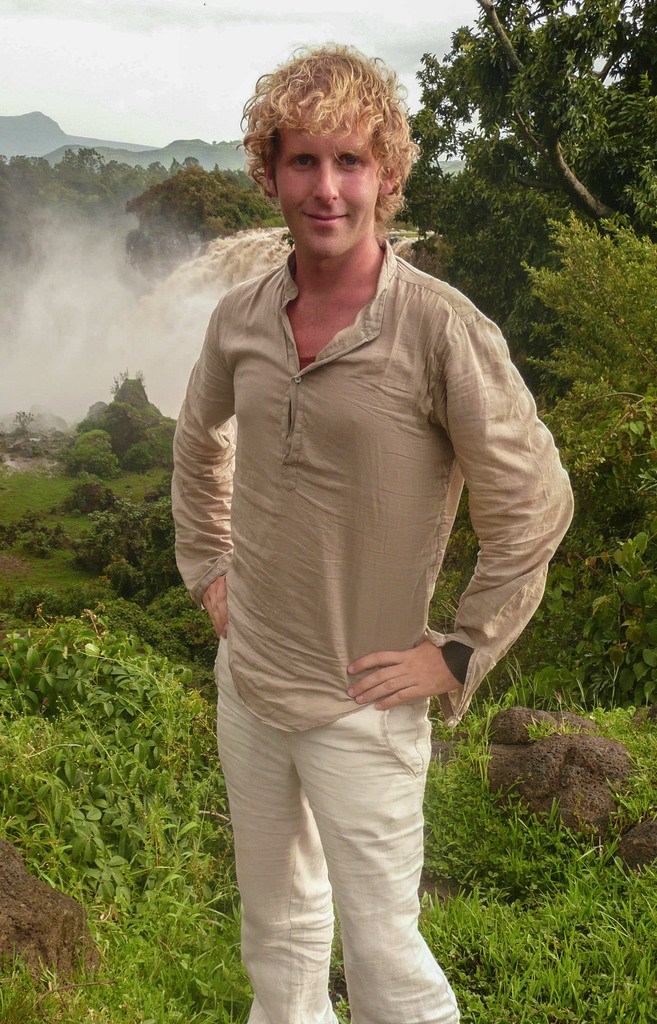
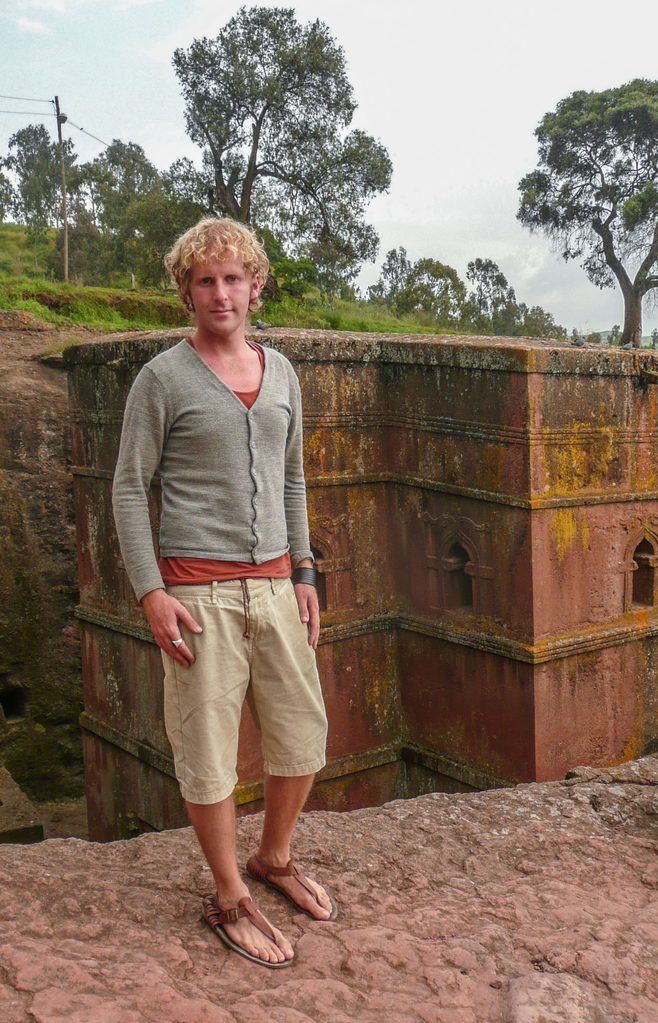
By being conscious of how you present yourself and dressing appropriately, you can show that you are considerate and respectful of the local culture, which can also help you to make a positive impression on the people you meet during your travels.
Be Aware of Your Body Language and exude Confidence
Being mindful of your body language and projecting confidence can go a long way in keeping you safe. Criminals and opportunists often target individuals who appear unsure or vulnerable, making them an easier target.
By appearing confident and in control, you are less likely to attract unwanted attention and may even deter potential threats from approaching you. Additionally, projecting confidence can also help you navigate unfamiliar environments with greater ease and comfort, overall making for a more enjoyable travel experience.
Never Leave your Bags Unattended
Leaving your bags unattended can put them at risk of theft or being tampered with. It is important to keep your belongings close to you, especially in crowded areas such as airports or train stations where theft is more common.
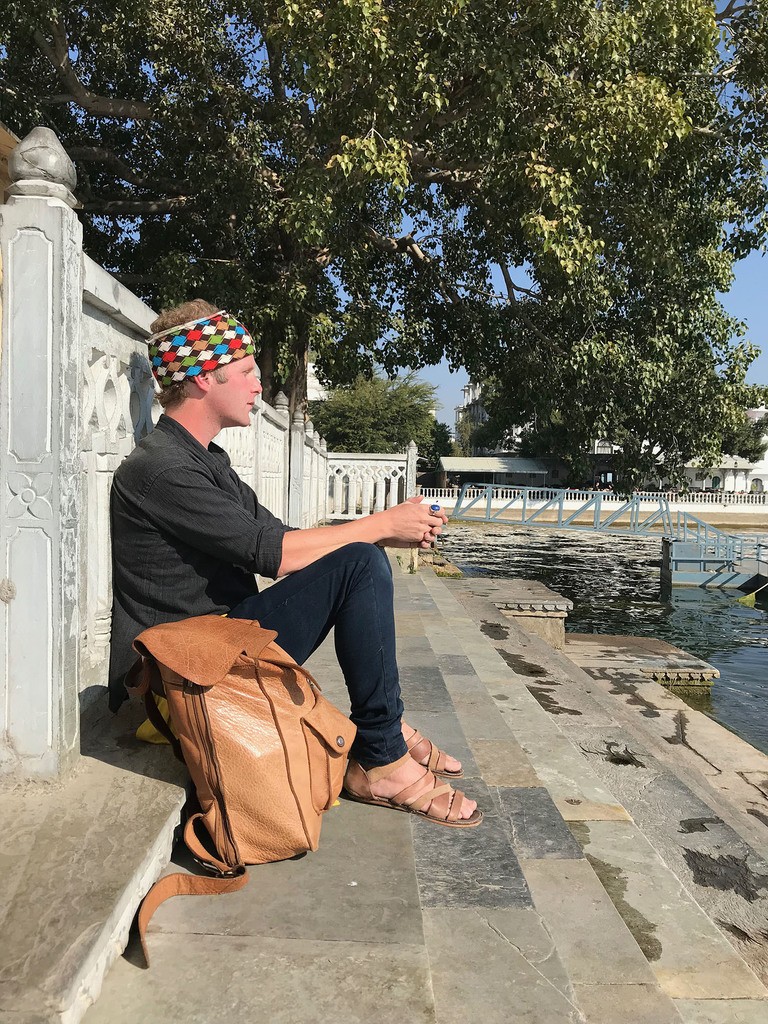
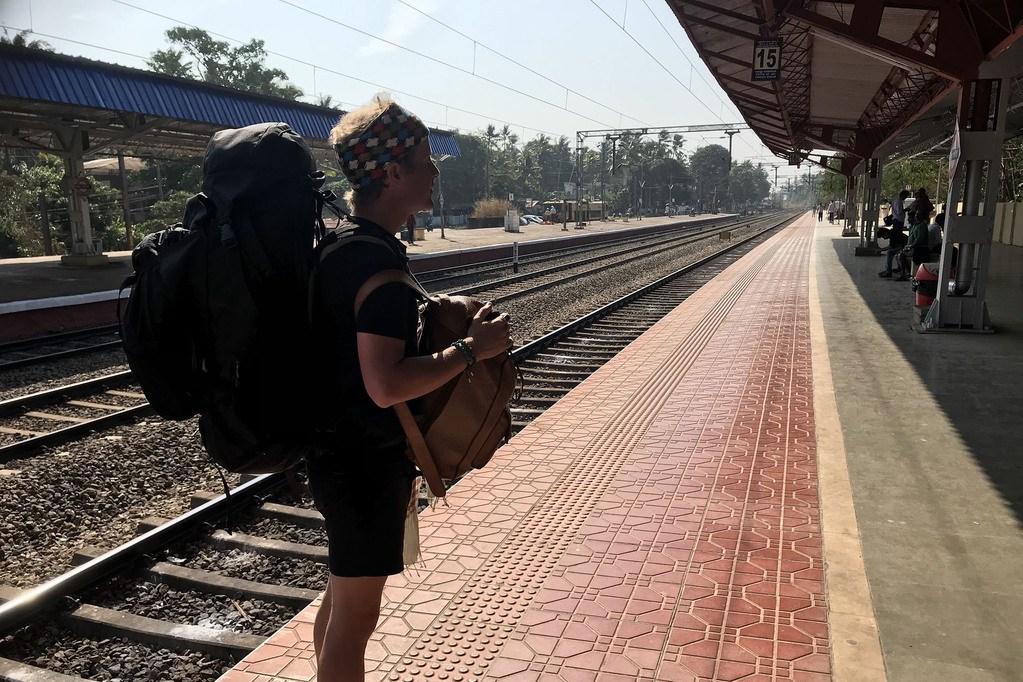
By keeping your bags with you, you can avoid the stress and hassle of losing your possessions. Additionally, some airports or transportation systems may have strict rules and regulations regarding unattended baggage, and you could face consequences for violating these rules.
It's always better to err on the side of caution and keep your bags close by, even if it means carrying them with you wherever you go. I know it sucks taking a huge backpack into the toilet cubicle, but I’d prefer to be crowded in there than risk my possessions being stolen.
Don’t Flash your Cash and Valuables
Keeping your cash and valuables out of sight can help you avoid becoming a target for thieves and pickpockets. Displaying your wealth can attract unwanted attention.
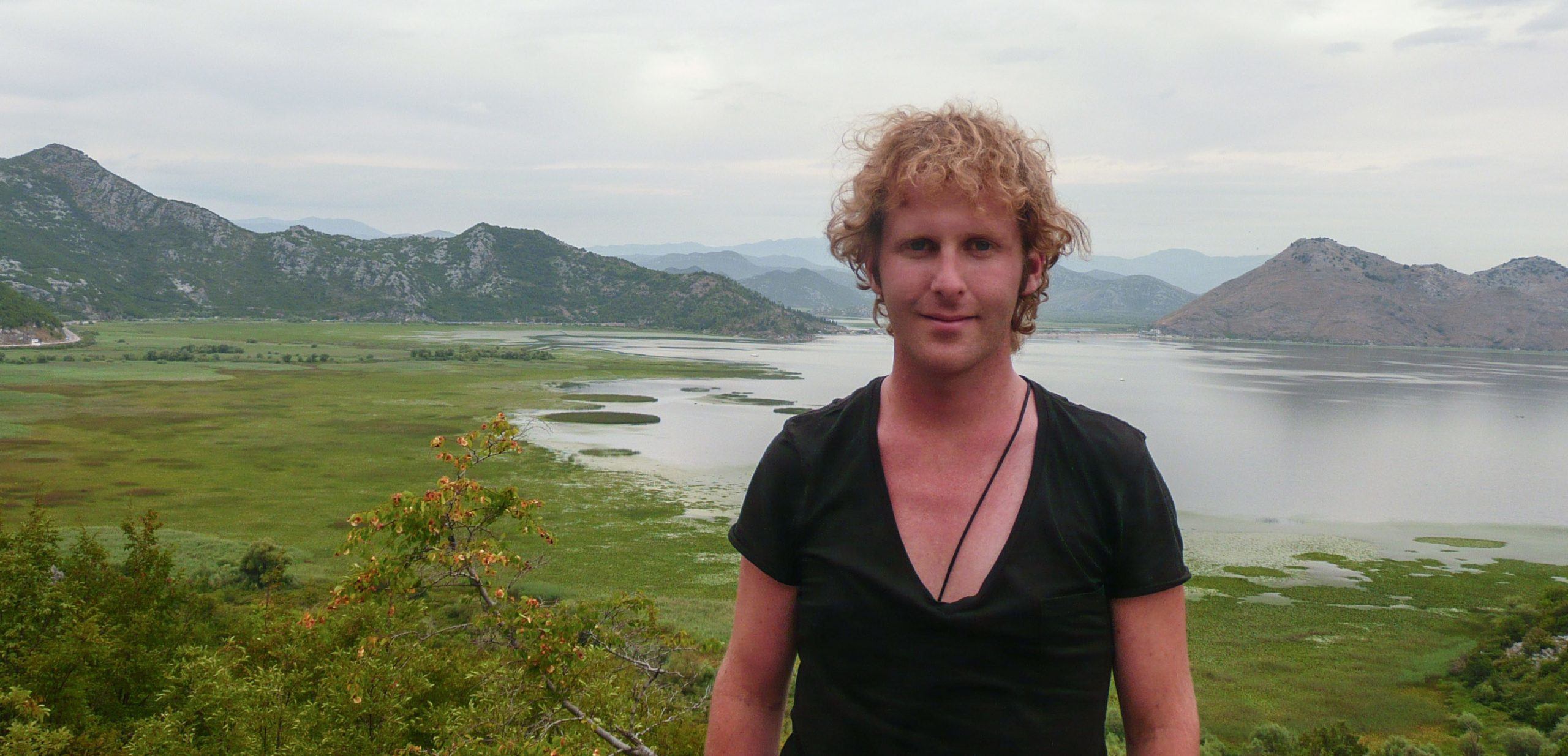
Instead, try to carry only what you need and keep the rest of your money and valuables locked away in a safe or hidden in a secure location (such as under your clothing). By being discreet, you can focus on exploring your destination and creating unforgettable memories.
Hide Extra Cash for the ‘Just in Case’ Moments
Having extra cash hidden away in a separate location can be extremely helpful in case of emergencies, such as lost or stolen wallets or unexpected expenses. It can help you avoid potential dangers that could arise from carrying all your cash and cards in one place.

Remember to not reveal the location of the hidden cash to anyone else. By taking this precautionary measure, you can ensure that you have access to funds when you need it most, without putting yourself at risk.
Consider Food and Water Options Carefully
Consider the safety of the food and water you choose. Consuming contaminated food or water can lead to illnesses such as food poisoning or waterborne diseases, which can put a damper on your trip and potentially lead to your needing medical attention.
In some parts of the world, food safety and sanitation practices may not be up to the same standards as your home country. It's important to be mindful of where you choose to eat and drink, and to be aware of any warning signs that the food or water may not be safe to consume.
Being deliberate about choices means you avoid spending your trip sick in bed or having to cut it short due to health issues.
Be Cautious when Using ATMs
When travelling, it's important to be cautious when using ATMs. ATM fraud and theft are common occurrences, and travellers can be particularly vulnerable to these types of crimes.
Criminals can use skimming devices, cameras, or shoulder surfing, to steal your card information and access your bank account. By being cautious when using ATMs, you can protect yourself from financial loss.

Always be aware of your surroundings and choose ATMs located in well-lit areas with high foot traffic. Cover the keypad when entering your PIN to prevent anyone from seeing it and avoid using ATMs that look suspicious or have any signs of tampering. If available, use an ATM inside a bank.
Avoid Using your Pockets as Storage
Carrying items in your pockets can be a tempting target for pickpockets, who are skilled at slipping items out of pockets without the owner noticing. By avoiding using your pockets as storage, you reduce the risk of losing important items like your phone, wallet, or passport.
Instead, use a secure bag or pouch to store your belongings, ideally one that can be worn across your body under your clothing. This way, you can keep your hands free and your valuables close, reducing the risk of theft or loss.
Wear Daypacks on the Chest, not the Back (Particularly in Crowded Areas)
While some travellers might think wearing a daypack on their back is more comfortable or practical, it can make them vulnerable to theft, especially in crowded areas.
Wearing a daypack on the chest allows you to keep an eye on your belongings and any potential threats around you. This means that you can easily monitor for potential pickpockets (who’d otherwise try stealing your valuables without you noticing). It's more challenging for someone to access your bag while it’s in your full control ... on your chest.
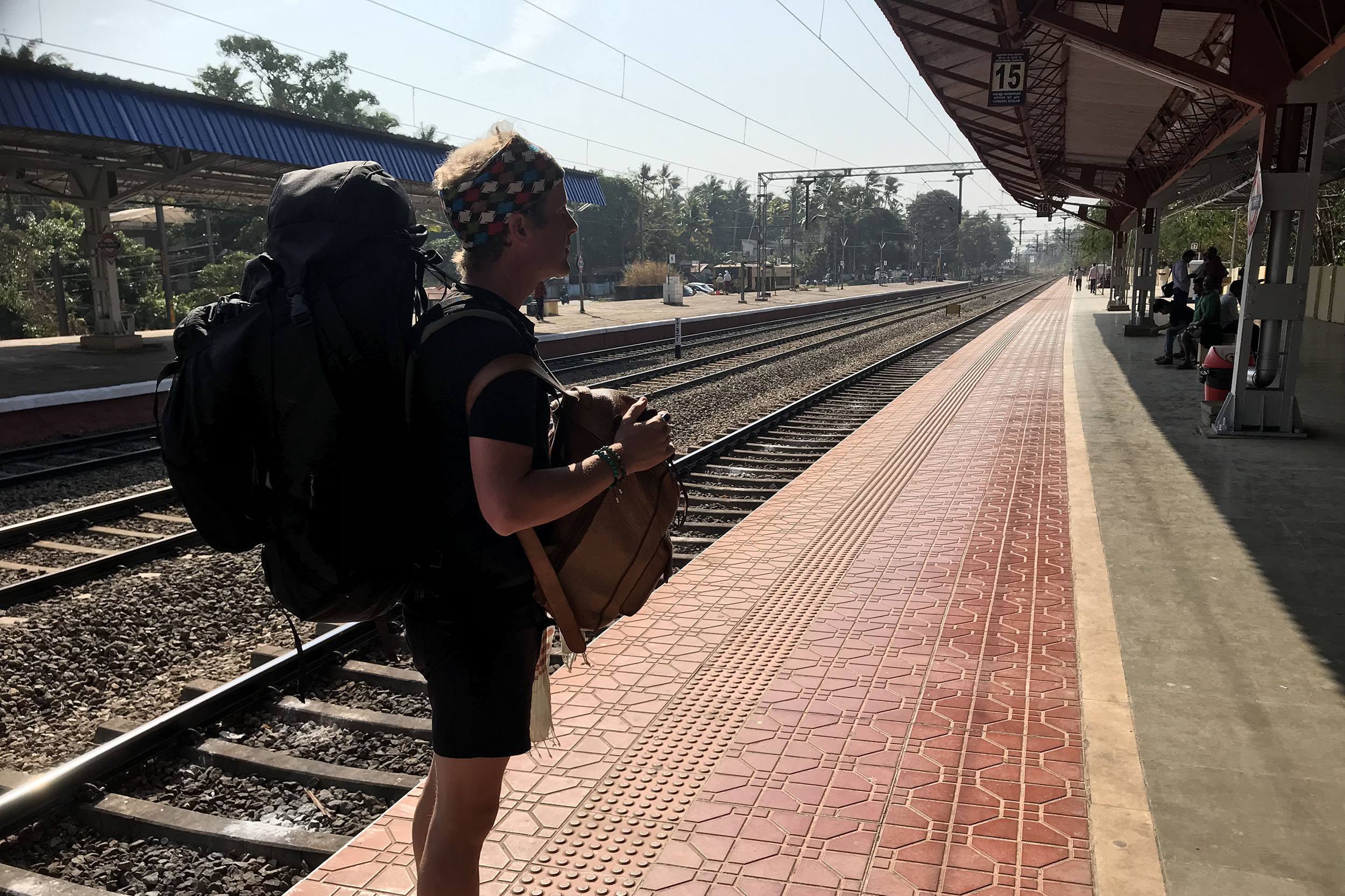
Having it on your chest can also prevent back strain or injuries that can occur from carrying backpacks for extended periods. This is important for those who travel with a lot of gear or have pre-existing back problems.
Travel with Others Whenever in a Suspicious Environment
Travelling with others can provide an additional layer of safety and security. In unfamiliar or potentially dangerous environments, travelling alone can make you more vulnerable to potential threats, such as robbery or assault.
When you are with others, you can look out for each other and deter potential threats. Additionally, travelling in a group can provide a sense of comfort and reassurance, which can help you navigate unfamiliar and potentially unsafe surroundings with more confidence.
Carry a Well-Stocked First Aid Kit
Carrying a well-stocked first aid kit is essential to ensure that you are prepared for any unexpected injuries or illnesses that may arise. While we may not always anticipate accidents or injuries, they can happen at any time.
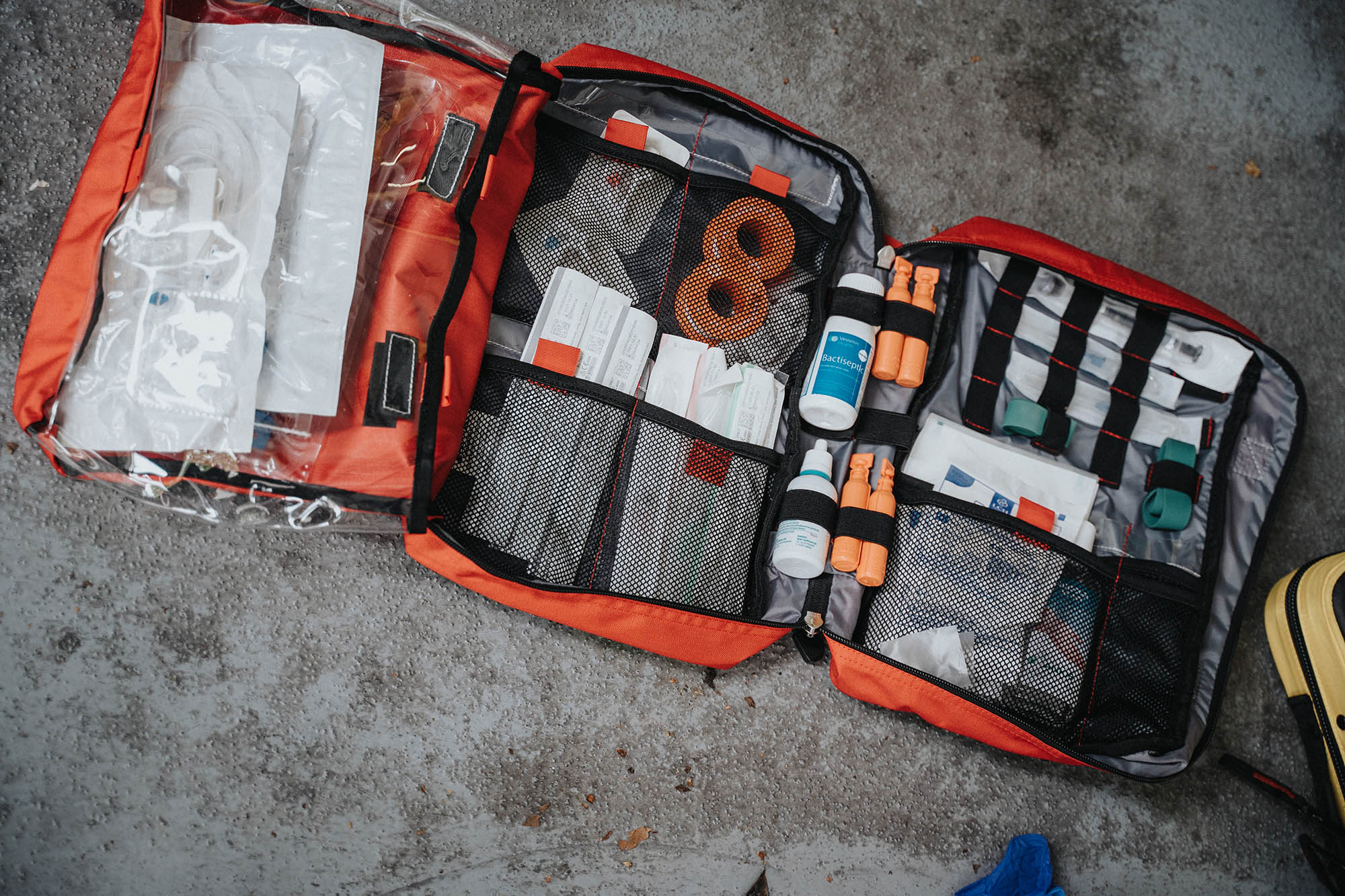
Having a first aid kit with you can help you avoid minor inconveniences, such as cuts and bruises, from turning into more serious health issues. It can also provide you with the necessary supplies to manage any medical conditions or injuries you may have, such as allergies.
You can use your first aid kit to assist others who may need medical attention, especially in areas where medical facilities may be limited or not readily available.
Maintain Sobriety as Much as Possible
Maintaining sobriety while travelling is important for a variety of reasons. First, it helps you stay aware of your surroundings and make good decisions. Being intoxicated can impair your judgment, making you more likely to take risks or make poor choices that could put you in danger. And being under the influence can make you more vulnerable to theft, assault, or other crimes.
Staying sober also helps you avoid potential legal trouble. In many countries, laws related to alcohol and drug use are much stricter than they are at home. Getting caught drinking or using drugs in public or driving under the influence can result in fines, imprisonment, or even deportation.
Maintaining sobriety allows you to fully experience and enjoy your travels. Drinking excessively can leave you feeling unwell or hungover, causing you to miss out on opportunities to explore the chosen destination.
Use Contraception if Being Sexually Adventurous
Using contraception while being sexually adventurous during travel is crucial for your physical and emotional well-being. It can help prevent sexually transmitted infections that can have long-lasting effects on your health and fertility.
By using contraception, you can enjoy your sexual experiences without worrying about the potential consequences. It is also a responsible and respectful behaviour.
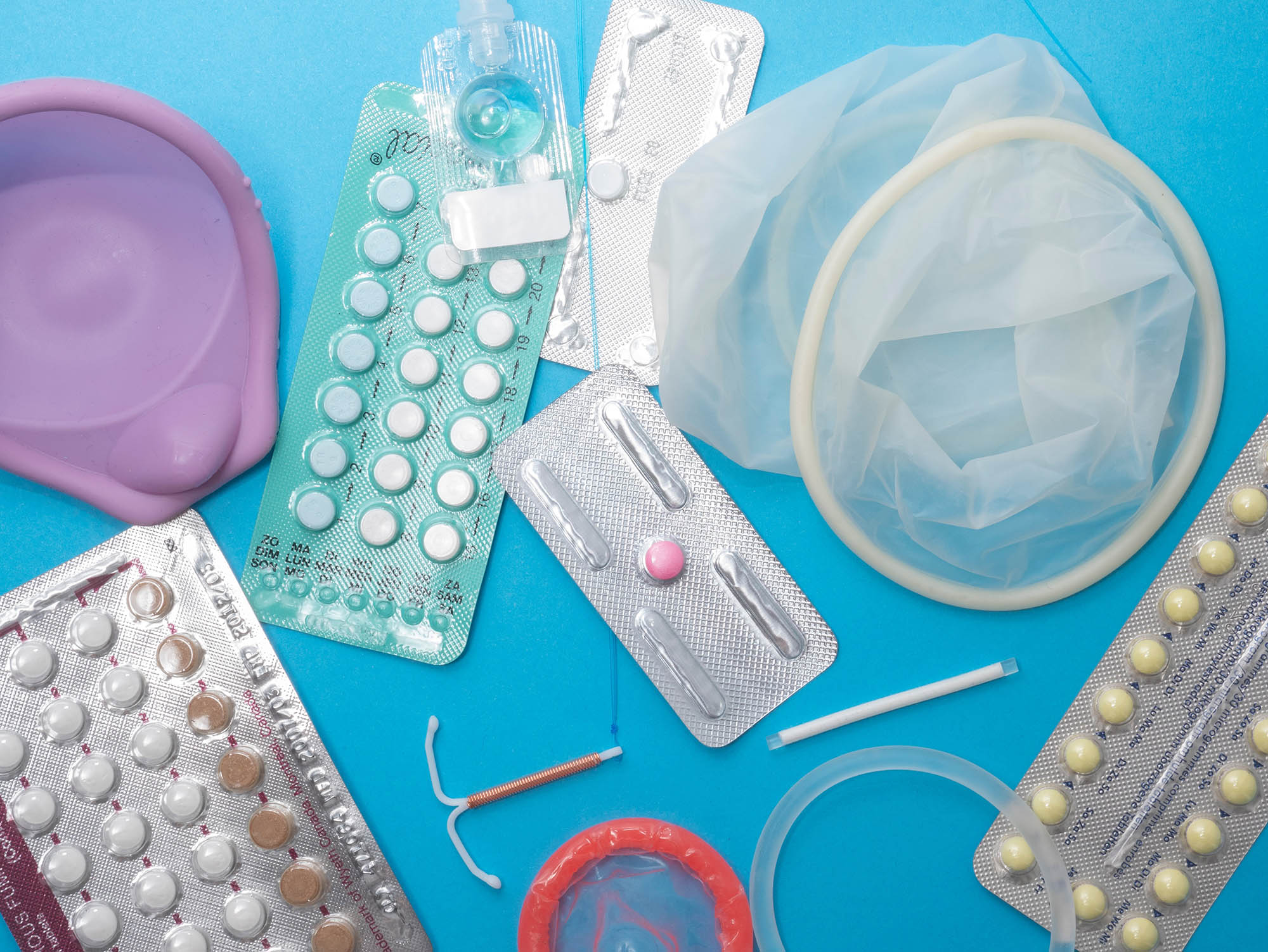
Make sure to pack and use condoms (and birth control pills), and to have an open and honest conversation with your partner(s) about your expectations and boundaries.
Trust your Instincts
Trusting your instincts is essential. Our instincts are often based on years of experience and observation, and they can help us identify potential threats and dangerous situations. By trusting our gut feelings and intuition, we can avoid getting into situations that could lead to harm or danger.
It can also prevent you from becoming a victim of theft, fraud, or violence. Your instincts may warn you of potential dangers, and if you listen to them, you can take action to protect yourself. For example, if you feel uncomfortable or uneasy in a particular area, it's best to leave and find a safer location.
Trust your instincts so you don’t compromise your safety.
Be Aware of your Surroundings
Being aware of your surroundings is an essential aspect of safe travel. It involves being conscious of the people, places, and things around you and staying alert for any potential threats or danger. This helps you identify potentially dangerous situations and take necessary precautions to avoid them.
When you're in an unfamiliar place, being aware of your surroundings can help you navigate your way around more easily, find your bearings, and stay on course. It also helps you to recognise any landmarks or notable locations that can help you retrace your steps or find your way back to your accommodation.
It may also help you blend in with the local culture, customs, and people, making you less of a target for scams, theft, or other crimes. By observing the behaviour of the locals, you can learn what is considered appropriate or inappropriate, how to interact with people, and what areas to avoid.
It’ll help you stay calm and composed during an emergency. If you are in a public place and an incident occurs, such as a fire or a terrorist attack, being alert and observant can help you to identify escape routes, exit points, or safe areas to take shelter.
Use Reputable Transportation
Unmarked taxis or unlicensed transportation services may seem like a cheaper or more convenient option, but they can put you at risk of robbery, assault, or kidnapping (depending on the country).
By using reputable transportation, you can ensure that you are travelling with a licensed and insured driver who has undergone background checks and is held accountable for providing a safe service. This can give you peace of mind and reduce the chances of encountering danger while on the road. And reputable transportation services often have safety features such as seatbelts and GPS tracking, which can further enhance your safety.

Ultimately, investing in reputable transportation can make all the difference in ensuring a safe experience.
Keep Emergency Contact Information on Hand
In case of an unexpected event, such as a natural disaster, political unrest, or a personal emergency, having emergency contacts on you can be a lifesaver. This could be a family member or friend who can be reached in case of an emergency, such as if you become unconscious or unable to communicate.
This provides peace of mind for both you and your loved ones. In the event of an emergency, it means your family is notified as soon as possible. It can also provide a point of contact for your family to coordinate assistance or travel arrangements if needed.
Stay Up-To-Date on Current Events
Staying up to date on current events allows you to make informed decisions about your itinerary and avoid any areas that may be unsafe due to political or social unrest.
By researching the destination beforehand, you can learn about any recent events, such as protests or demonstrations, that could potentially affect your trip. Situations can change quickly so stay abreast of changes while you’re travelling.
By being aware of current events, you can also take steps to avoid areas that are known to be unsafe or to adjust your travel plans accordingly. For example, if there are reports of increased crime in a certain neighbourhood, you can avoid that area or take extra precautions when visiting.
This helps you make informed decisions and avoid potentially dangerous situations.
Use Secure Technology
Using secure technology is crucial when travelling to protect your personal and financial information. Cybercriminals are always looking for ways to steal valuable data, and travellers are often seen as easy targets.
By using a Virtual Private Network (VPN), you can encrypt your online activity and protect your sensitive data from being intercepted by cybercriminals. Although it’s great having access to free public WIFI (especially at accommodation facilitates), be aware that it’s often insecure and your system is easily compromised.

Although it’s not ideal if you’re on a budget (like me), but using your phone data (or a secure hotspot) to access the internet is best practice.
Keep your devices locked and password-protected to prevent unauthorised access.
Be Respectful of Local Customs and Laws
Being respectful of local customs and laws is essential for safe and enjoyable travel. Different countries and cultures have unique customs and traditions that may differ significantly from what you are used to. Understanding and respecting these customs will help you to avoid any cultural misunderstandings or unintentional offences that may upset the local people.
Additionally, laws and regulations can vary significantly from one country to another. As a visitor, you are subject to the laws of the country you are visiting. Not being aware of them can lead to legal problems, including fines, imprisonment, or deportation.
Respecting local customs and laws shows respect. It can also help you gain a better understanding and appreciation of the destination you are visiting, making your experience more enriching.
Have a Plan for Emergencies
Having a plan for emergencies is crucial when travelling, as unexpected situations can arise at any time. By having a plan in place, you can avoid panic and confusion and take swift action to address the situation.
For example, if you or someone you're travelling with becomes seriously ill or injured, you'll need to know how to quickly get medical attention. This may involve calling emergency services, getting to a hospital, or accessing medical care in a foreign country.
Similarly, if you find yourself in a dangerous or threatening situation, you'll need to know how to quickly remove yourself from harm's way. This may involve contacting local authorities, seeking refuge in a safe location, or calling for help from your embassy or consulate.
Having a plan for emergencies helps reduce anxiety when travelling. You'll feel more confident in knowing you’ll be able to better handle unexpected situations.
